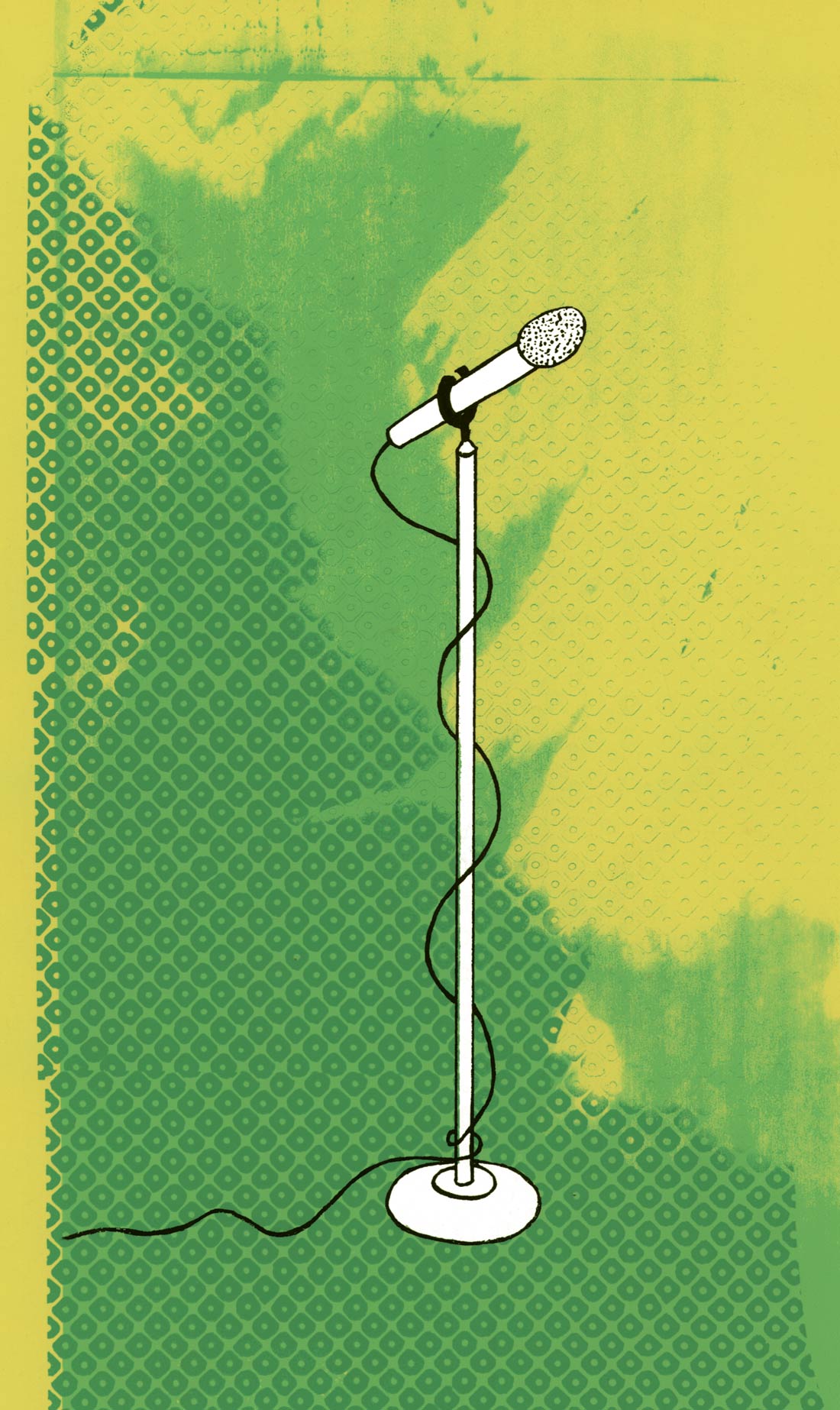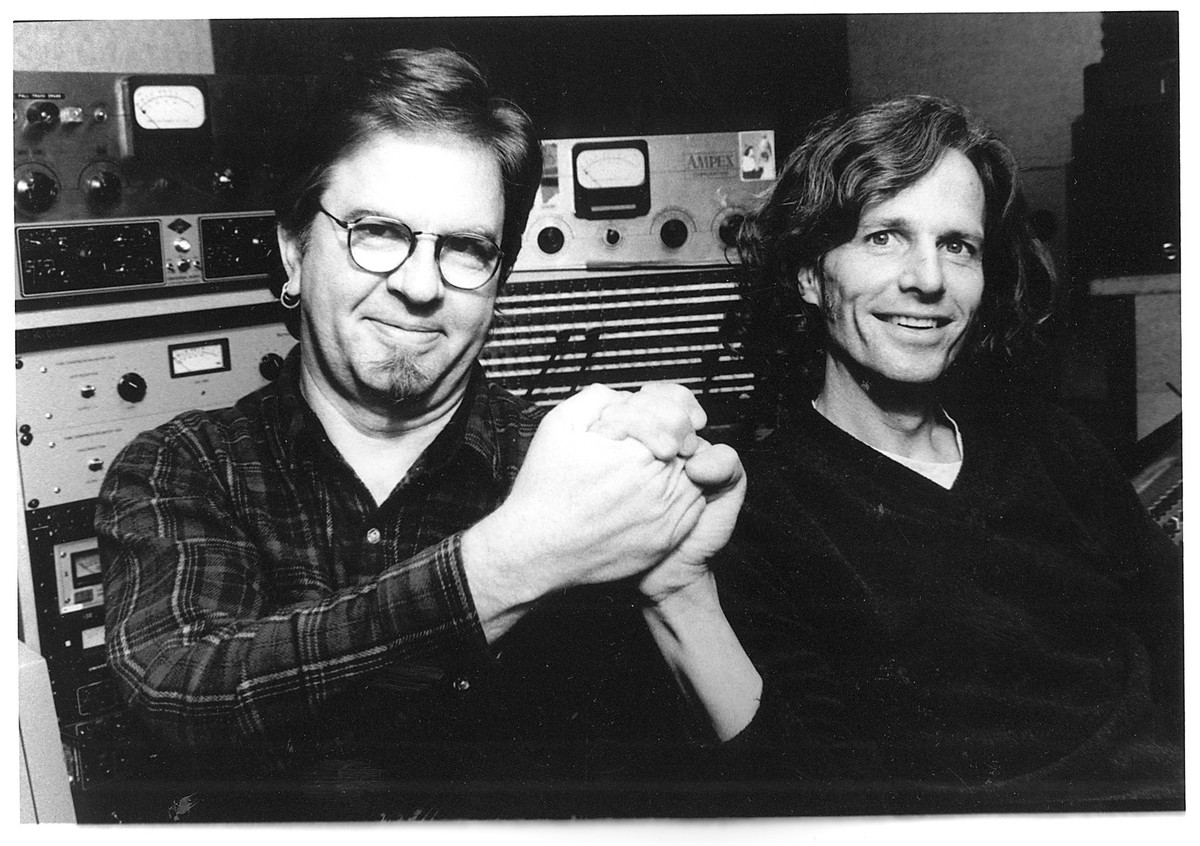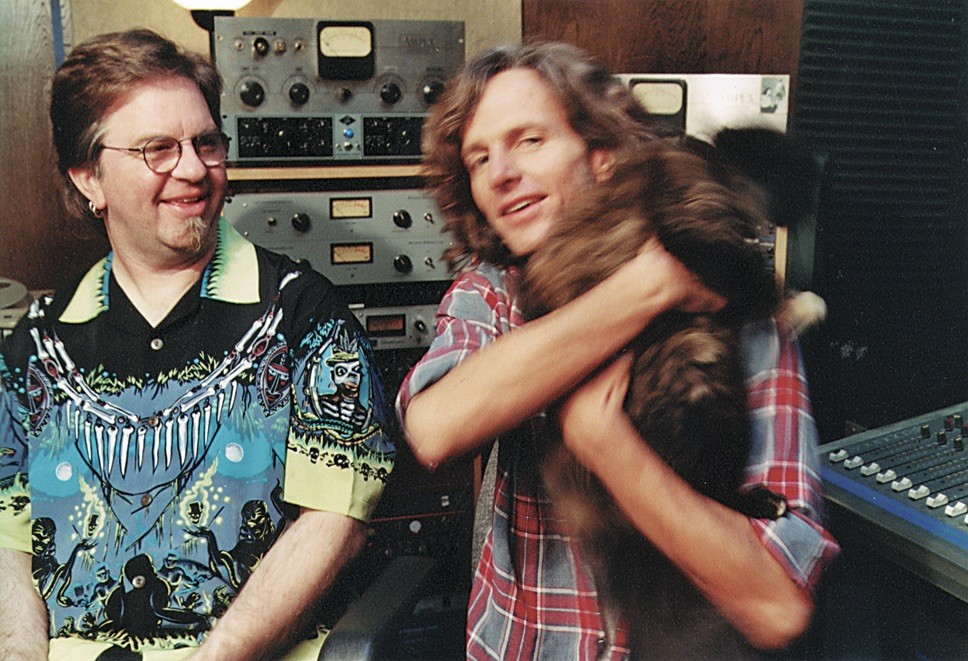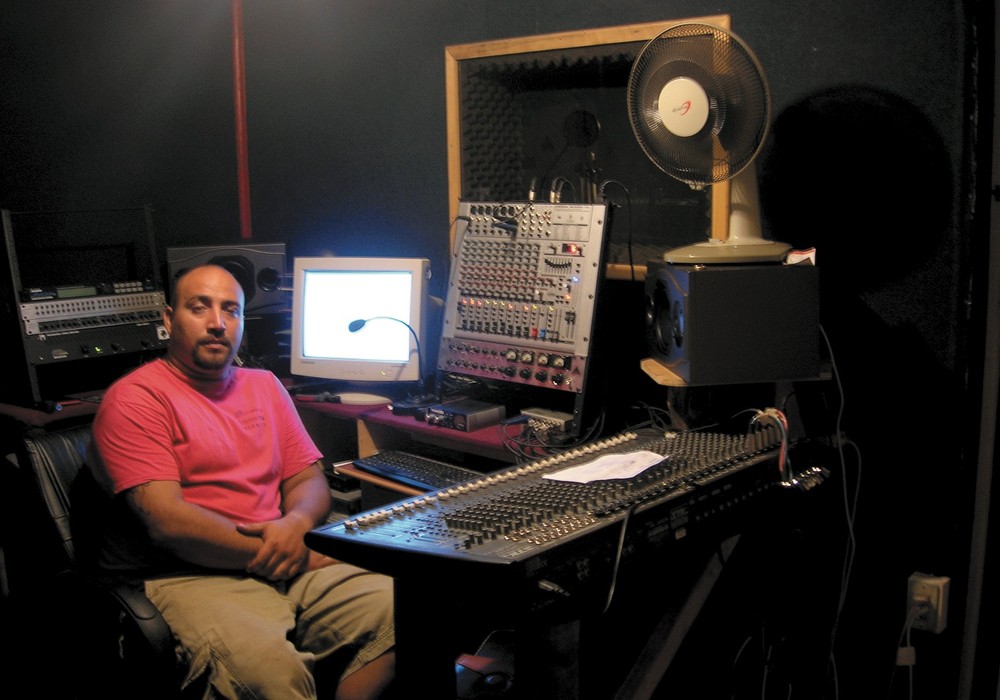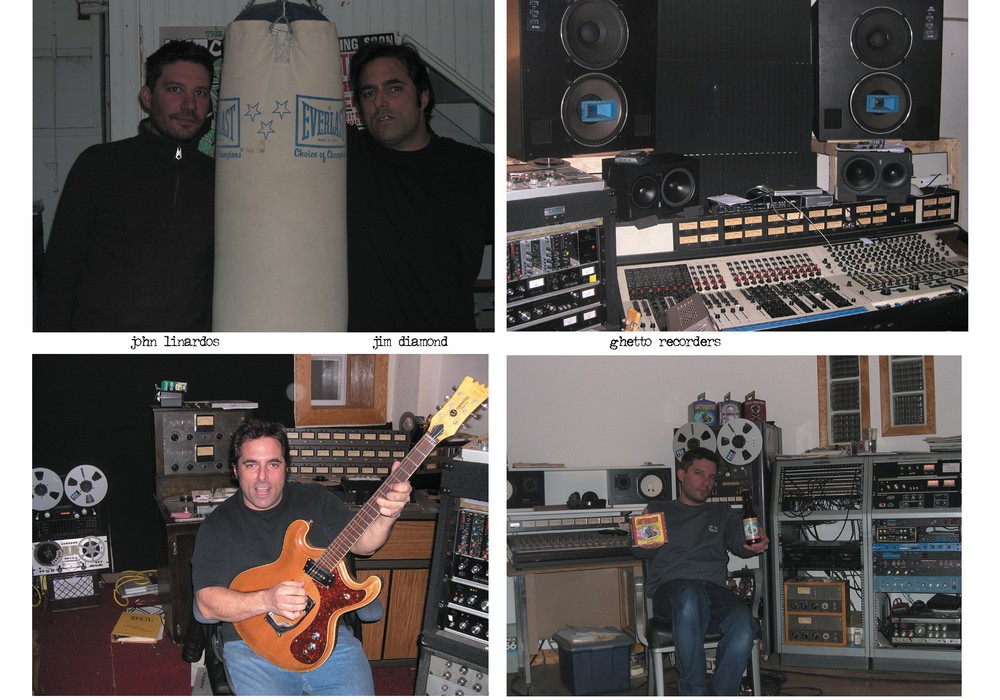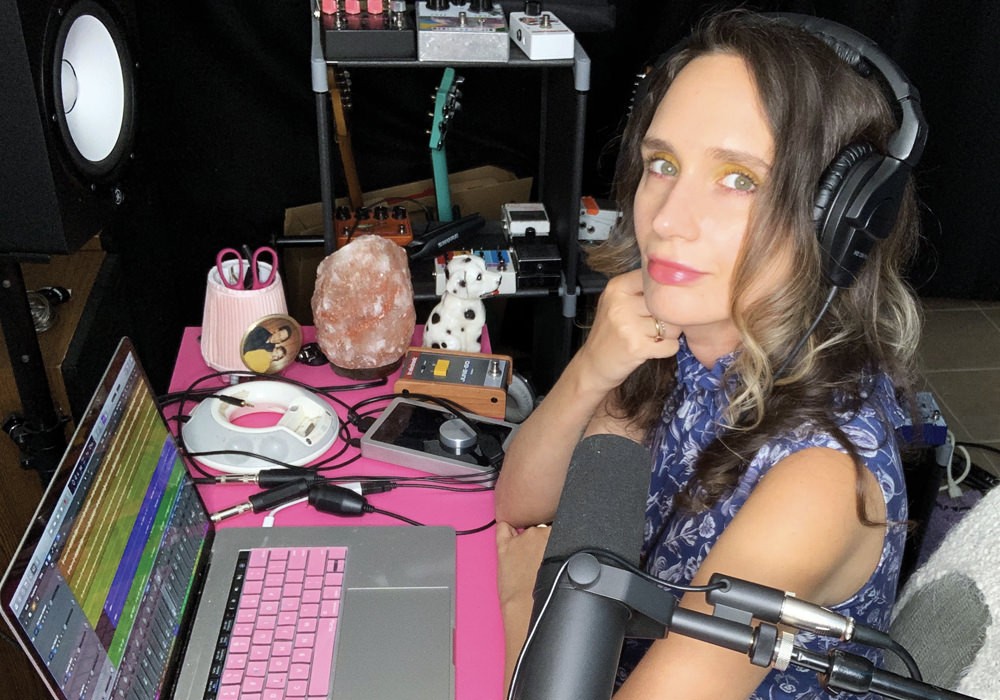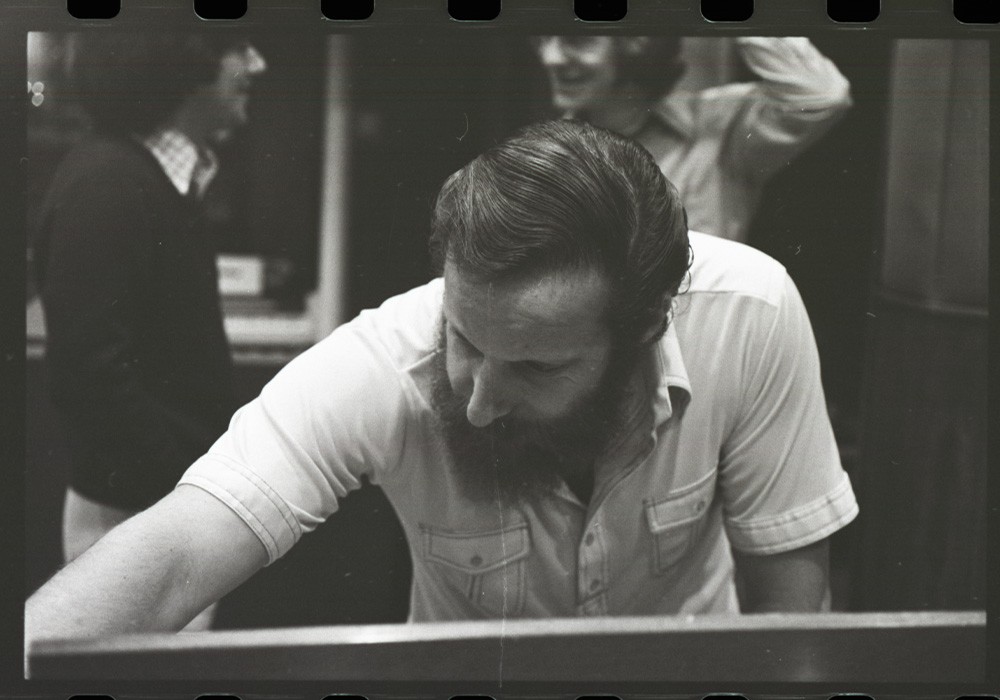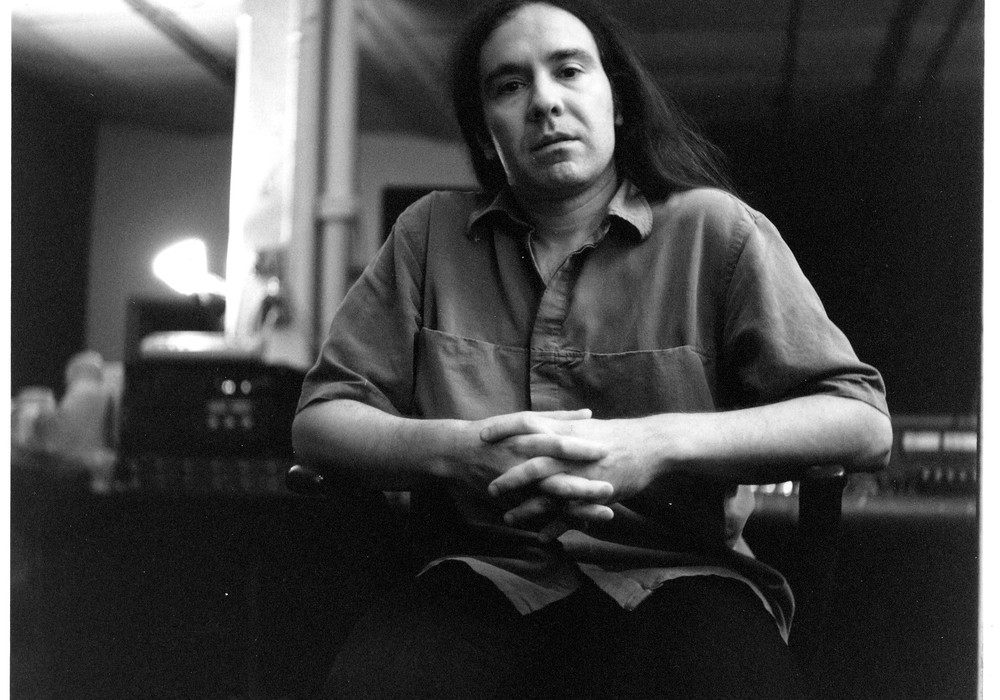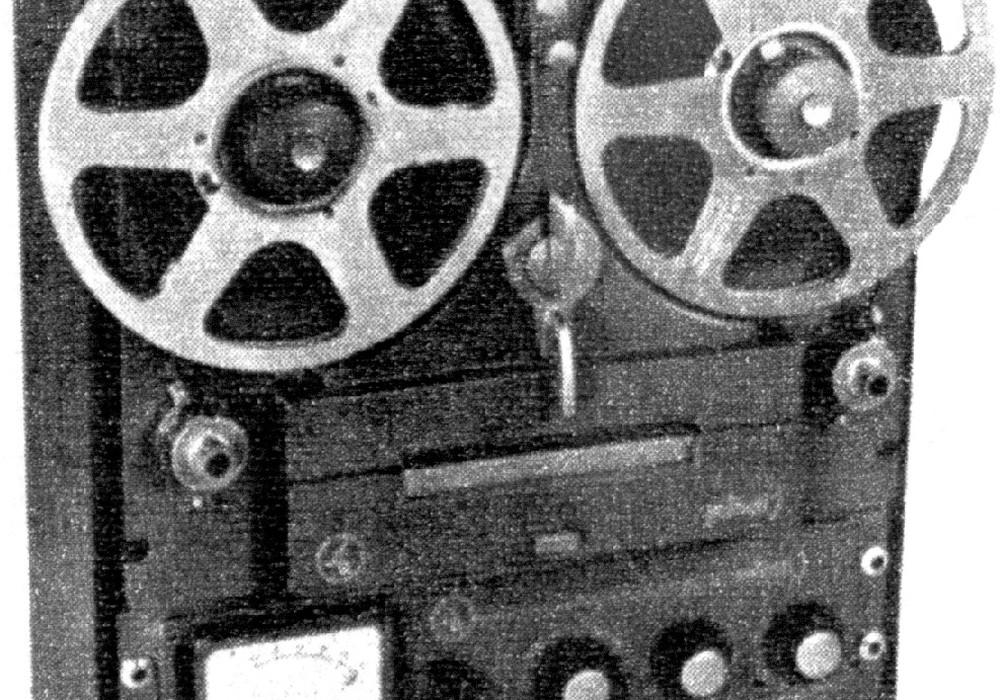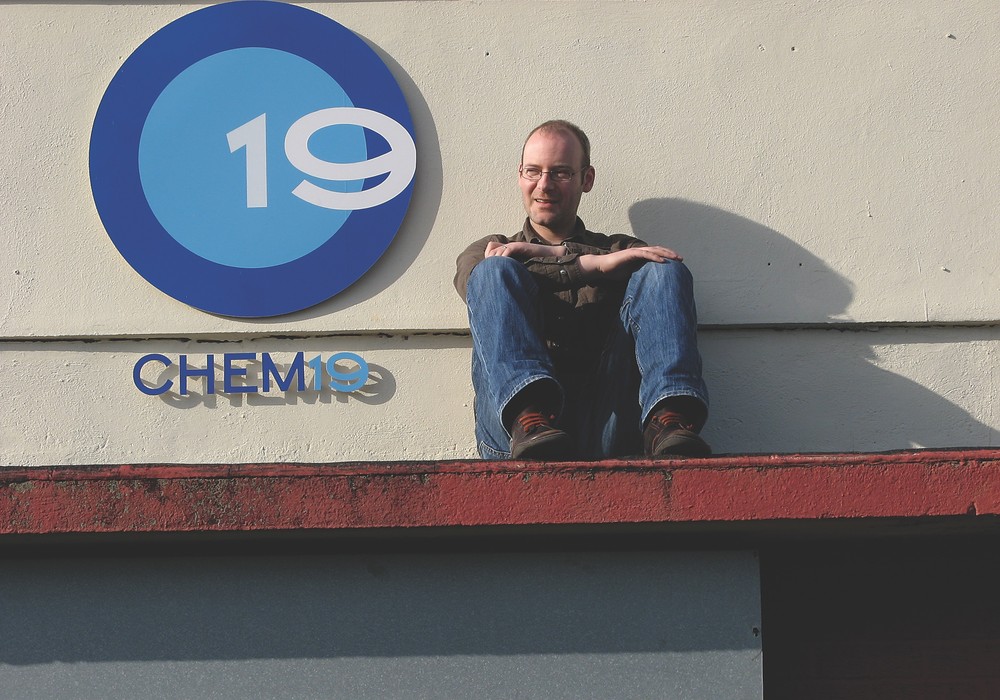Bart Thurber, once described by a record reviewer as the punk rock Phil Spector, has a favorite expression — "An engineer drives a train — I'm a recording guy". He's a West Coast legend to the 1,800 plus rock bands (including a Minor Forest, Diesel Queens, and J Church) plastered on the walls of his control room at House of Faith studios. Bart's studio partner, Myles Boisen, is no slouch either. He's engineered and/or mastered hundreds of pop, blues, and jazz recordings, as well as dozens of avant-garde musicians from around the world, like Anthony Braxton, Fred Frith, Eugene Chadbourne, John Tchicai and the Rova Saxophone Quartet. He's also regarded as an authority on vintage mics and microphone testing, with numerous articles published in Electronic Musician magazine and Mix Books publications. When Myles is at the board, the studio changes monikers to Guerilla Recording. He also teaches audio engineering at Guerilla (in 1979 he began teaching one of the country's first university-level recording studio programs). Here begins the story behind three tracking rooms and a sky-lit control room in a unassuming part of Oakland, California.
Do you use different mics and gear depending on the type of music?
MB: I've actually done research on blues recording at Chess in Chicago, and Rudy Van Gelder, his style of recording jazz for Blue Note and Riverside — things like that. I think it's a good place to start if you're doing music that has a historical precedent. Start there and see how it works. Don't be afraid to be old fashioned! People who were recording in the '40s, '50s and '60s really knew what they were doing. Feedback from the musicians is a really important part of it. The more specific they can be about the sound, the better. When they say everything sounds good right off the bat, I wonder if they're really paying attention.
BT: Most of the music I record is pretty much in the same genre — fast and loud. A lot of dynamic mics and crushing guitars, maybe one room mic for the drums, depending how fast the song is, because if it's really fast then it's just going to get all muddy. I can't use as many older condensers as I'd like because it won't sound right or historically accurate. They want it to be in your face, they want it to be punchy, and that leaves out a lot of equipment sometimes.
Do you ever have bands telling you you're doing something wrong, something counter to what so and so does?
BT: Not as much as you might think. I'm kind of surprised. They're all pretty well-versed in the recording process now, but I think that a lot of bands realize that recording at home — with 4-tracks or 8-tracks or whatever — and coming into the studio are completely different things. The best thing for them creatively is to let me run this whole end and tell them when they're fucking up or whatever. And the best thing on their end is to play the song and try to be comfortable. Leave this part up to me. I do think it's really important to get the trust of the band in the first 15 minutes.
MB: That's hard to do. There are a lot of engineers out there who maybe don't have a lot of social skills. They may be great at engineering but they may not be so good at addressing the various psychological aspects of having a band in the studio.
Especially if the band is feuding! Make my bass part louder versus you're stealing all my guitar frequencies!
MB: And the engineer is the only person really hearing the music!
BT: I think a lot of the bands who come in here expect you to give them some feedback. You know, "We went to this other studio and the guy didn't say anything!" Never be shy about giving the bands feedback. If they think you're full of shit they'll let you know, and if they like it, they're totally going to like you. Once you realize that they do like the suggestions that you're making, you can figure out what they really want.
Do you guys have any favorite guitar amp micing techniques?
BT: I like to use a good old SM57 and any kind of Sennheiser, like a 421ora441,whichiskindofahi- fi 421. Then you find the best speaker on the amp — on any 4x12 cabinet there is one speaker that will sound better than the others. They don't even have to play. If the guy has any noise or static coming out of the amp then you can tell right away.
MB: So you listen for the brightest speaker?
BT: Mainly one that seems like it has the most tone, the widest range. So you get the two mics, cross them over each other like an x-y pattern, but right on top of each other. I put them half way between the cone and the outside of the speaker — it usually has the most tone right there — then I'll compress the 57 with a LA-3 or an LA-4. The LA-3 is a lot nicer but most people don't have that kind...
